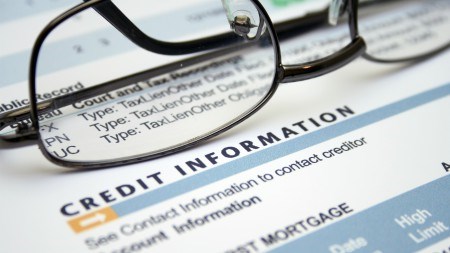Why a good credit rating is important when it comes to buying or renting property.
What is a credit report?
A credit report contains information about your personal details and credit history, current payments and account balances, and any alerts about defaulted payments or legal action against you. Credit bureaus use all the information on your credit report to produce a credit score, which credit providers use to determine whether or not to lend you money. The better your credit score, the more likely lenders are to advance credit.
Buying property
Most property buyers will require a mortgage loan advanced by a bank or other credit provider. So if your credit score is on the poor side, you will find it very difficult to get a loan to buy the property you want. And, if they do decide to grant you a loan, a lower credit score means that credit providers will charge higher interest rates.
Renting
When you apply to rent a property, the rental agency will ask for all your details in order to check whether you are a suitable tenant. They will request your credit report from one or more of the main four credit bureaus, as well as the two bureaus that specialise in tenant profiling.
How to build a good credit score
Live within your means: This is the number one rule of successful personal finance, as well as credit management. Make sure that you can afford what you buy – even when you buy on credit.
Have a financial plan: Budgeting can help you pay your loans off faster, avoid carrying a balance on your credit card, and keep your debt at manageable levels.
Make payments on time: The most important factor in your credit score is your payment history. Missed payments or regular late payments will be reflected in your score.
Keep debt levels low: For a better credit score your total debt payments should be no more than 36% of your monthly income.
Have different types of credit accounts: A mix of revolving and instalment accounts is preferable. Instalment accounts like mortgages and vehicle loans show you can make fixed monthly payments on time over a long period. Revolving accounts like credit cards demonstrate that you can periodically pay down your debt, without going over your limit.
Track your spending: Keep track of where you spend your money. This way, you will be less likely to overdraw your accounts. It’s also a good idea to track your credit card spending separately, so that you avoid exceeding your limit.
Monitor bank and credit card accounts: Reconcile statements regularly to make sure your records match those on the statements. You can also regularly check your accounts online to spot fraudulent charges even before they appear on your statements.
Keep old accounts open: A longer credit history can improve your credit score, and help you appear more responsible.
Check your credit reports regularly and fix any errors: You are entitled to one free credit report every year from each credit bureau.
How to fix things if your credit score is poor
Rebuilding a good credit record is possible, but it does take time. The key is to work hard for it, be patient - and ask for help if you need it. The first step is to check your credit report where you can find your account payment history, balances and instalments as well as adverse credit information. This will give you a clear picture of your credit position, highlighting which areas you need to work on to get yourself back to a good credit record.
There are four main credit bureaus in South Africa, and different creditors will report to different bureaus – some may report to all four and others may only report consumer information to one or two. This means different credit bureaus may hold slightly different information about you, so it’s best to check that all four bureaus have your correct details on record. Check for inaccuracies. Incorrect information can be disputed and removed, which will boost your credit score.
Work on paying down debt overall. Getting a more favourable debt-to-limit ratio will give you a better credit record. It can also help you get into better financial shape in general.
If you have defaulted on payment, do pay off the debt. This may temporarily worsen your credit score, but in the long run, it will prevent more adverse information on your record. In some cases, defaulting on a loan can still harm a credit report – even after bankruptcy. So, if have defaulted, it’s best to pay off the debt even if you’re late.
Ask for help. Talk to a financial adviser who will be able to help get your finances back on track.
Going under debt review will negatively affect your credit profile. It will reduce your score at the credit bureaus, and you cannot legally take on any new debt while under review. This step should only be considered as a last resort.
Disputing incorrect information
Credit bureaus rely on credit providers to supply information about consumers, and in some cases the information on record at the credit bureau may be incorrect or out of date.
If any of the information in your credit report is incorrect, you may log a dispute through the credit bureau. During the dispute period the bureau will remove the disputed information for 20 business days while contacting the information provider for more details and evidence.
If at the end of the dispute period the credit bureau does not receive credible evidence from the credit provider to support the data, the dispute will be resolved in your favour.
If you are not satisfied with the outcome of the dispute investigation, you can contact the Credit Ombud at 086 166 2837 or www.creditombud.org.za.





